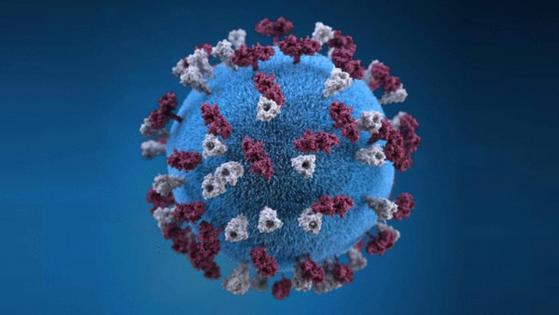South Carolina sees first measles case of 2025, officials say
Published in News & Features
An Upstate South Carolina resident has the measles, the South Carolina Department of Public Health confirmed Wednesday. It is the first case of the disease in the state since September 2024, the agency said.
The affected resident is not vaccinated and caught the virus during an international trip, according to a press release. They are currently in isolation at their home and were not contagious while traveling, the release said.
“We have begun a contact investigation notifying people who could have been exposed. Contacts have voluntarily quarantined” to prevent an outbreak, Dr. Brannon Traxler, DPH chief medical officer, said at a Wednesday press conference.
“Before [the September 2024 case], there were six cases in the fall of 2018,” Traxler said. “Prior to that, the last reported case in South Carolina was in 1997.”
In 1957, before vaccines against measles were widely available, the state had almost 6,000 cases. There have been three deaths from measles in the United States in 2025 so far.
Traxler declined to identify the city or county where the infected individual resides, citing privacy concerns. She said she believes any further spread of the disease can be prevented due to self-quarantines, and no other cases have been confirmed at this time.
“Measles is highly contagious, and a serious disease caused by a virus that affects the respiratory tract. This virus spreads quickly, which is why we must act now to prevent its spread,” Dr. Linda Bell, state epidemiologist and Health Programs Branch director, is quoted in the release.
“It is crucial that health care providers and the public be aware of the symptoms associated with this disease,” Dr. Bell added. “It is proven that the best way to prevent measles is by vaccination. I strongly encourage everyone to review their immunization records to make sure they are up to date on all vaccinations and to talk with their health care provider about the benefits and risks of getting vaccinated.”
Public health concern
Dr. Pamela Bailey, an infectious disease specialist with Prisma Health, told a Wednesday press conference that many in the public health field feel the return of measles is especially concerning.
”Many epidemiologists consider measles the most infectious disease known to mankind,” Bailey said. One infected person can spread the disease to up to 18 others, a much higher rate of spread than with the flu or COVID-19, Bailey said.
“A measles infection can wipe out a patient’s immune memory for everything except measles,” she said, explaining this would leave someone more susceptible to “flus, common colds, diarrheal diseases. Your body just forgets everything else.”
According to the Centers for Disease Control and Prevention, 1,267 cases of measles had been confirmed in the U.S. as of July 1, 2025, including cases in Palmetto State neighbors Georgia and North Carolina along with 35 other states. The CDC has confirmed three measles deaths so far this year.
“There have been 27 outbreaks [defined by the CDC as a group of three or more related cases] reported in 2025, and 88% of confirmed cases (1,115 of 1,267) are outbreak-associated. For comparison, 16 outbreaks were reported during 2024 and 69% of cases (198 of 285) were outbreak-associated,” the CDC reports on its website.
Starting in January, Texas saw a measles outbreak with a total of 753 confirmed cases, primarily in the west of the state, according to the Texas Department of State Health Services. 98 of those infected were hospitalized.
In a July 8 update, officials said that less than 10 of the confirmed cases are expected to be actively infectious. Over the course of the outbreak, two school-aged children died. Both were not vaccinated, and neither had underlying conditions. Throughout the recent Texas outbreak, the majority of measles cases were in children 17 and younger, according to the July 8 update.
That’s part of a national trend, as the number of measles cases has hit a record high this century, the New York Times reported on Wednesday.
Concern for children
”One concerning thing to people in public health is watching the number of children entering school who are not vaccinated for measles in South Carolina,” Bailey said.
“We have dropped below the 95% threshold [needed for herd immunity against spread of the disease] in South Carolina,” she added. “We are ripe for outbreaks. And there are pockets of communities that, for cultural reasons, have chosen not to vaccinate, and those can lead to big outbreaks” like the one in Texas.
Measles can manifest in a rash lasting five to six days, Traxler said, and can escalate to pneumonia and swelling of the brain. One in five cases may require hospitalization, and one in a thousand infected will die.
The disease is spread through the air and the virus can remain infectious for up to six hours after the infected person has left the area, Traxler added. Anyone with measles should isolate for at least four days after the rash first appears. Adults with healthy immune systems can receive an MMR vaccine even if they may have previously gotten one of the multi-stage shots or contracted measles, although a completed dose of MMR or a prior history should give lifelong immunity. The vaccine is available at most pharmacies.
_______
©2025 The State. Visit at thestate.com. Distributed by Tribune Content Agency, LLC.







Comments